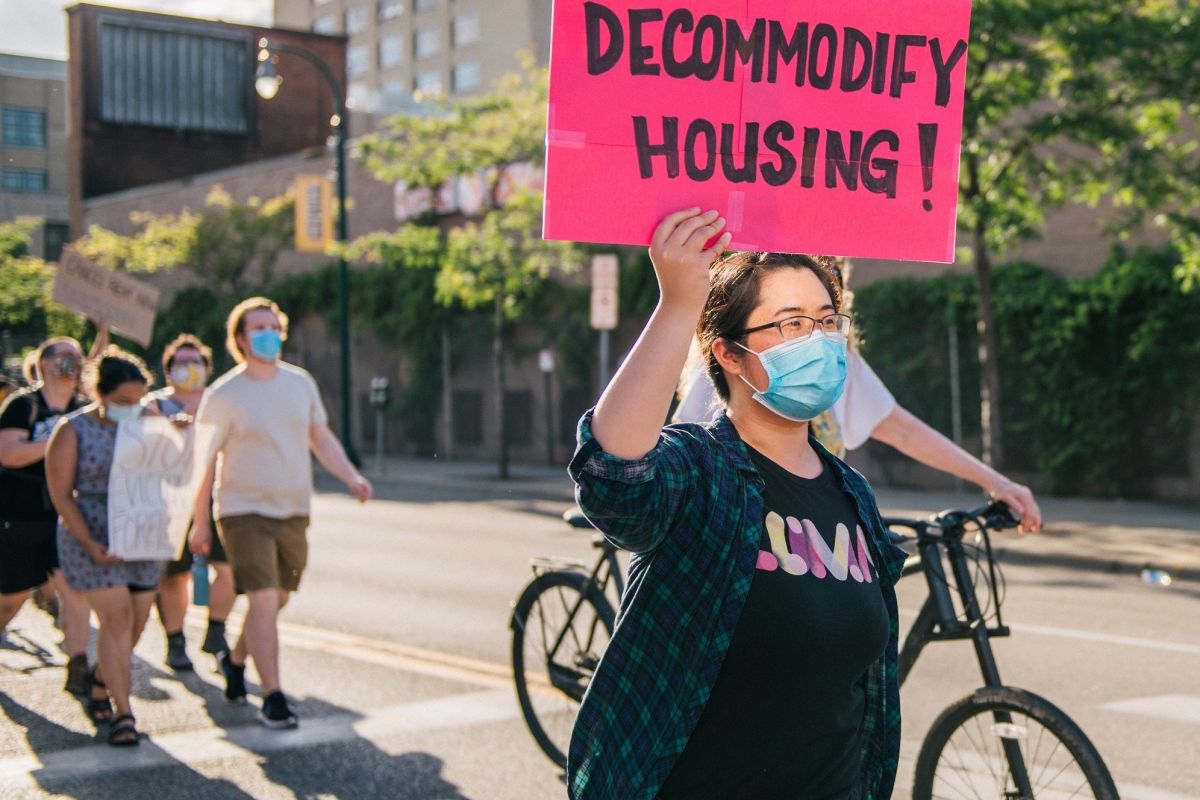The COVID-19 pandemic intensified the problems of affordable housing in large cities, such as New York Therefore, the entity’s Democratic senator, Kirsten Gillibrand, joined her party colleague, representative Yvette Clarke, to promote a bicameral bill that addresses this problem at the national level.
Recent real estate reports highlight that Hispanics are the group that is growing the most in terms of buying a home, but there is a high percentage that still does not achieve that goal, adding to a growing problem at the national level.
The 49% of Americans consider it a “big problem” against the 36% that indicates that it is a “minor problem”, indicates a report from the Pew Research Center.
Less than half of white adults (44%) say that the availability of affordable housing is an impo important where they live, but the number skyrockets among black adults (57%) and Hispanics and Asians (both 55%).
The Democrats’ proposal is to invest $15,000 millions of dollars in housing each year for 10 years, in addition to changing the way housing eligibility is determined for individuals low-income.
“The global pandemic exposed the scope of the housing crisis in New York City and across the country,” Gillibrand said. “Affordable housing is getting harder to find, and we need to rethink how we help low-income families.”
The project focuses on low-income and middle-class families, noting that current calculations by the Department of Housing and Urban Development (HUD), known as Area Median Income (AMI), which is used to determining rental prices and income limits for affordable housing, excludes low-income families.
“AMI is currently based on income data from the entire metropolitan area, which means that data from the wealthier areas of Westchester and Rockland County is used to determine who qualifies for housing in low-income communities throughout our region,” the legislators lament.
More of 350,000 new units
The Fairness and Affordable Housing Bill Area Median Income 2022 would take a multi-pronged approach, helping to empower municipalities, increase developer transparency, and bolster affordable housing supply .
“The bill would create more than 350,10 new affordable housing units with an annual investment of $19,000”, she insists.
Representative Clarke, who is originally from Brooklyn, considers that the current regulations have left millions of families out.
“In my beloved Brooklyn and in too many communities across the country, the security of affordable housing has become completely out of reach for those who need it ”, he expressed. “For communities of color most affected by these inequities, we cannot afford to do nothing while suffering from unaffordable safety.”
Other benefits of the project include lower income limits and lower rental prices.
“This bill is a fundamental step in our fight against housing insecurity and I am proud to have presented it”, he said.
Among the arguments of the plan, it is highlighted that at the national level , just under half of all renters face a rental burden that exceeds 30% of their income.
“Almost 1 out of every 4 tenants contribute more than 50% of their income to rent every month”, he laments. “In cities across the country, especially New York City, high rent prices and a severe lack of affordable housing units continue to displace low-income communities and keep basic housing needs out of reach. ”.
Democratic legislators are not alone in this plan, since they now have 36 Additional law co-sponsors, including Alexandria Ocasio-Cortez, Jamaal Bowman, Ritchie Torres, Hakeem Jeffries, Jerrold Nadler, Mondaire Jones, Grace Meng, Adriano Espaillat, Gregory Meeks, Carolyn Maloney, and Nydia Velázquez.
Keys to the project
The bill would have different levels of impact, such as:
– Require the Department of Housing and Urban Development to evaluate alternative calculation methods for a person to be considered for affordable housing.
– Help co Control the maximum rental cost.
– Create a fund of $5, million dollars to build housing for people with very low incomes.
– Designate $5,000 million to assist local governments in increasing the supply of affordable housing.
– Allocate $5,000 million for the development of urban communities for renters low and moderate income.
